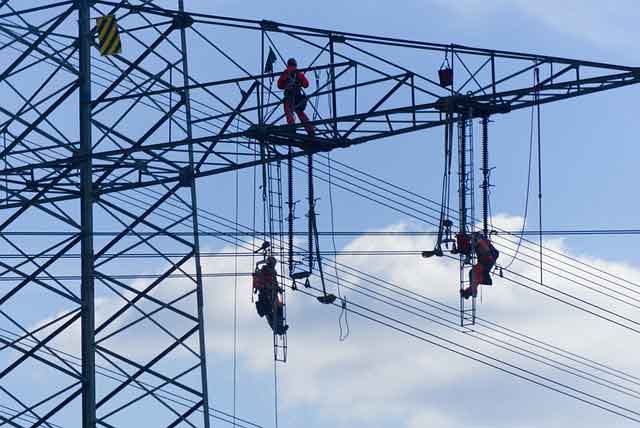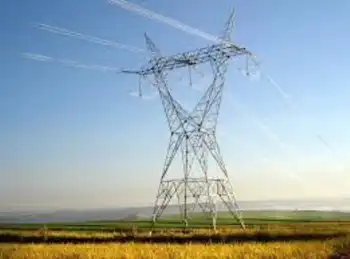State regulators concerned about airplane safety over proposed west Hayward sites
By The Daily Review
NFPA 70e Training
Our customized live online or in‑person group training can be delivered to your staff at your location.

- Live Online
- 6 hours Instructor-led
- Group Training Available
High-velocity plumes generated from power plant heat stacks "have a potential to pose a hazard to aircraft" flying to and from the Hayward Executive Airport, according to a letter sent by the California Energy Commission to city officials.
Paul Richins, a manager in the state commission's siting division, wrote that the hot, mostly invisible plumes can disturb the stability of the atmosphere above plants, especially in the winter.
"Plumes are thermally buoyant during colder weather and more likely to maintain their vertical velocity at higher altitudes under calm, cool conditions," Richins wrote.
Hayward's busy general aviation airport is a little more than a mile north of where Texas-based Tierra Energy wants to build its 115-megawatt Eastshore Energy Center on Clawiter Road.
San Jose-based Calpine Corp. also wants to build the much bigger, 600-megawatt Russell City Energy Center about a half-mile west of the Eastshore plant.
Both power plants would serve the Pacific Gas & Electric grid. And both plants, if built, are expected to emit plumes that exit from heat stacks at a velocity ranging from 71 to 74 feet per second, Richins said.
For the Russell City plant, the plumes would emerge from two 145-foot-tall stacks near Hayward's wastewater treatment plant on Enterprise Avenue. For the Eastshore plant, emissions would emerge from 14 stacks that each would be 70 feet tall.
The Russell City plant would also have nine 64-foot-tall cooling towers emitting additional plumes estimated to rise at 34 feet per second. The Eastshore plant would not have any cooling towers and would not emit any visible plumes.
State energy officials began scrutinizing the aircraft safety issues in Hayward because of concerns that have arisen over power plant proposals in the southeastern California city of Blythe.
Charles Hull, manager of the Blythe Municipal Airport, said a power plant was built in 2001 on a site a mile west of his airport. Another power plant is scheduled to be built nearby soon.
There have been no airplane accidents associated with the existing plant, though some pilots have registered turbulence complaints, Hull said. And in colder winter months, the plant sometimes produces a wet column of air.
"It's a very sensitive issue," Hull said. "You can't have an airport all of a sudden consumed by a cloud."
Partly because of those concerns, staffers at the California Energy Commission advised the commission in 2005 against building a second Blythe power plant, saying the location "creates a potential adverse airport safety impact."
The commission, which has final say on whether a plant will be built, allowed the plant a license anyway but placed a condition on the developer to mitigate air safety hazards.
Hull, who is also Blythe's assistant city manager, said the airport established an airfield wind-advisory system that takes wind and temperature measurements. The state also made power plant operators implement various safety measures.
Susanne Garfield, a spokeswoman for the energy commission, said that because of the Blythe plant, officials now have a better understanding of the impacts of thermal plumes. Greg Trewitt, a Tierra Energy vice president and manager of the Eastshore project, said the company is prepared to work with the Federal Aviation Administration to study and address potential air safety hazards.
"I think the CEC is just making sure it is not a hazard," Trewitt said of the letter. "We'll have to work with the FAA and make sure we're not creating any issues with overflying aircraft."











